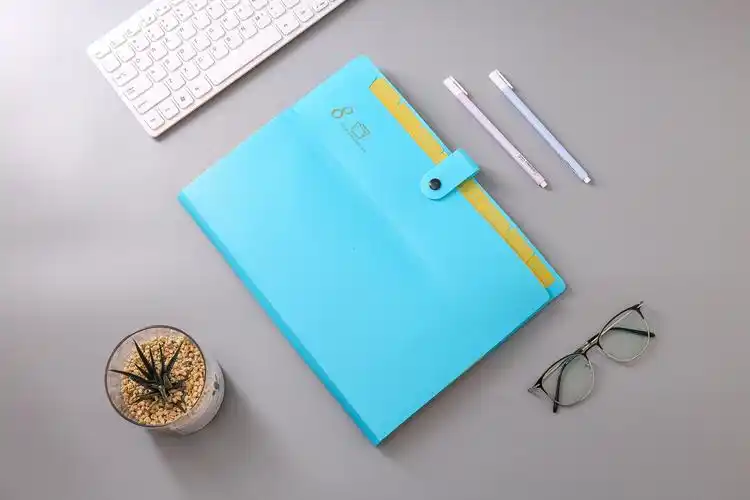Comprehensive Guide to Notebooks: Types, Sizes, and Uses
Notebooks, an essential tool for students, professionals, and creatives, come in various types and sizes designed for specific needs. Whether you're sketching, jotting down meeting notes, or planning your next big project, choosing the right notebook can enhance your productivity and creativity. This guide delves into the most common types of notebooks, their sizes, and their unique characteristics.
Types of Notebooks
Getting acquainted with different types of notebooks can help in selecting the perfect one for your requirements. Here are some of the most popular types:
1. Spiral Notebooks
Spiral notebooks are a staple for many due to their affordability and ease of use. With pages that can be fully turned and often perforated for easy tearing, they are ideal for taking notes in class or during meetings.
- Pros: Easy page removal, lays flat, affordable
- Cons: Spiral binding can become misshapen over time
2. Composition Notebooks
Known for their sturdy covers and sewn binding, composition notebooks are often used in schools. Their robust construction makes them durable without the fear of losing pages.
- Pros: Durable, classic look, no spiral interference
- Cons: Cannot lay flat, no easy page removal
3. Hardcover Notebooks
Hardcover notebooks offer protection for your notes and often come with additional features such as built-in bookmarks or elastic closures. They are perfect for professional settings and personal journaling.
- Pros: Durable cover, professional appearance, additional features
- Cons: Heavier, more expensive
4. Softcover Notebooks
Softer covers make these notebooks lighter and more flexible. They are often more affordable than hardcover options but may compromise on durability.
- Pros: Lightweight, budget-friendly
- Cons: Less protective, may wear out
5. Dot Grid Notebooks
Perfect for creatives, dot grid notebooks offer unobtrusive guidance for drawing, writing, and designing. They are favored for bullet journaling thanks to the balance they provide between structure and flexibility.
- Pros: Versatile, unobtrusive design
- Cons: Dot grids might be less suitable for formal documents
6. Lined Notebooks
The most traditional format, lined notebooks help keep the text tidy and organized. They are ideal for writing-focused tasks, such as essay writing or note-taking.
- Pros: Neat organization, perfect for writing
- Cons: Less flexibility for drawing or sketching
7. Graph Paper Notebooks
Popular among engineers and scientists, graph paper notebooks are filled with grid lines that assist in drafting or plotting data. They are also beneficial for math-related work and creative projects involving detailed sketches.
- Pros: Ideal for plotting and design work
- Cons: Grid lines may distract from writing
Notebook Sizes
Notebook sizes can vary widely, each serving different purposes. Understanding these sizes will ensure you choose a notebook that fits your needs perfectly.
| Size | Dimensions (inches) | Ideal For |
|---|---|---|
| Mini | 3" x 5" | Portable notes, quick sketches |
| 3.5" x 5.5" | Everyday carry, travel journals | |
| A5 | 5.8" x 8.3" | General-purpose, planners |
| B5 | 7.1" x 10.1" | Studying, detailed note-taking |
| A4 | 8.3" x 11.7" | Professional documents, sketching |
| Letter | 8.5" x 11" | Schoolwork, office tasks |
| Legal | 8.5" x 14" | Legal work, extensive note-taking |
Choosing the Right Notebook for Your Needs
For Students
Students often need a combination of different types of notebooks for various subjects. Spiral notebooks offer convenience and affordability, while composition books provide durability for long-term courses.
For Professionals
In the professional world, presentation matters. Hardcover and leather-bound notebooks are excellent for meetings, while dot grid notebooks offer flexibility for brainstorming sessions or designing processes.
For Creatives
Creativity requires freedom and sometimes structure. Dot grid and graph paper notebooks are ideal for artists and designers, providing both guidance and an empty canvas for innovation.
For Organizers
If you're planning events or managing schedules, a planner-style notebook combining calendars, to-do lists, and notes will help keep everything in check.
Innovative Notebook Features
Notebooks today come packed with features that can enhance their functionality:
Pocket Holders
Some notebooks include pockets to store loose papers, business cards, or other miscellaneous items, keeping everything you need within reach.
Perforated Pages
Perforated pages allow for clean removal of sheets without damaging the binding, perfect for when you need to hand in an assignment or share a page.
Elastics and Closures
Keeping your notebook securely closed can protect its contents. Many notebooks now come with elastic closures or button flaps to ensure they remain neat and protected.
Conclusion
Selecting the right notebook relies heavily on understanding your specific needs and preferences. Whether you prioritize durability, flexibility, or functionality, the wide variety of notebooks available ensures there's a perfect notebook for every task. Take time to consider the above types and features to enhance your productivity and creativity through the simple yet powerful tool of a well-suited notebook.
Always remember, while choosing a notebook might seem trivial, the right one can significantly impact how effectively you capture your ideas, notes, and plans. So choose wisely and let your notebook be the canvas for your next great endeavor!











 浙公网安备
33010002000092号
浙公网安备
33010002000092号 浙B2-20120091-4
浙B2-20120091-4